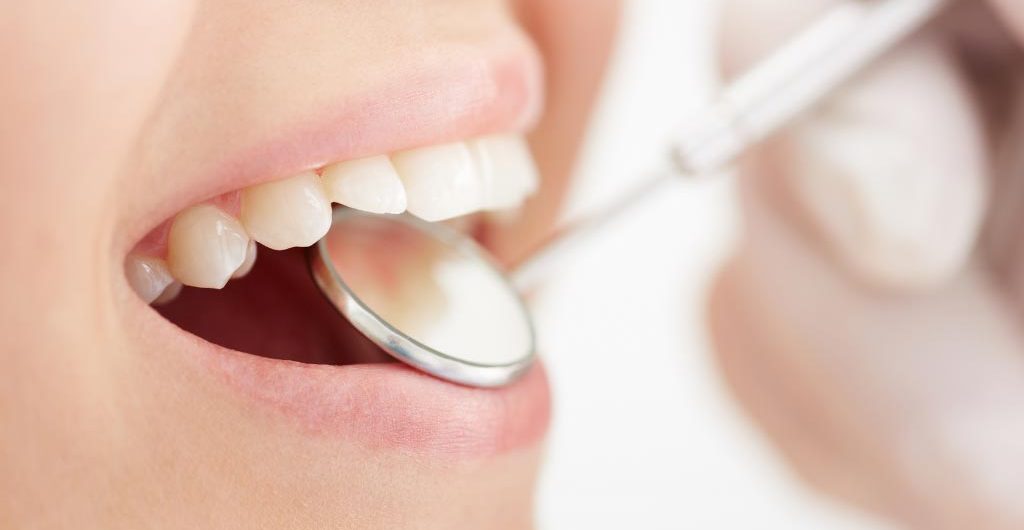What is Toothache?

Dr. Kübra Özaslan
- 6 June 2022
5 minutes

This is a common situation in patients with dental problems. There may be many reasons that cause this.
We can list the reasons for this problem as having a broken tooth, caries formation, wearing out of a previous filling, wrong tooth brushing techniques and gum problems. These toothaches that we mentioned can be seen together with bleeding.
Symptoms of toothache
- Pain felt while chewing
- Extreme sensitivity to heat or cold
- Bleeding and discharge around the tooth or in the gums
- Swelling in the area around the tooth or in the jaw area
- Pain due to trauma and injury
- Tooth breakage and loss
Does Having Tooth Decay Increase Pain?
Tooth decay is one of the main causes of many sensitivity problems encountered in the mouth. In cases where a person has a caries problem, consuming sweets, drinking sugary drinks, or consuming too much hot or cold food causes a serious complaint of tingling in the teeth. This sensitive condition, whose severity may vary depending on the progression of the decay, will also bring toothaches.
In order to solve this problem, it is necessary to first seek treatment for the existing caries.
What are the conditions that cause toothache?
The cause of tingling in teeth is not only tooth decay. The most common situations encountered are as follows:
- Incorrect tooth brushing techniques
- Tooth Fracture
- Fillings wear out or fall off
- Infections that may occur in the tooth
- Gum inflammation
- Blowing a tooth
In some cases, patients may experience pain in their teeth after dental treatment. However, this tingling is short-lived and will disappear within a few hours after the procedure. However, it can be said that some health problems encountered by the patient may also cause toothache.
Do filled teeth hurt?
It can be considered normal to experience pain, sensitivity and tingling in the tooth where the filling has been applied for the first few weeks after the filling procedure. Because during the caries removal application before the filling, the pulp area of the tooth, where the nerve network is located, is approached and this may cause sensitivity. In addition, fragmentation may occur in the extensions of this nerve network located under the enamel layer of the tooth. This causes the tooth to begin a repair process that will last several weeks. During this process, different symptoms such as tooth sensitivity and pain may be observed. However, there may be different reasons for the sensitivity that may occur after filling.
These are;
- Failure to completely clean the tooth decay that needs to be treated.
- Excessive heat generation due to the devices used during the cleaning process being operated without water.
- The filling does not hold or becomes airy as a result of the filling not being filled successfully.
- Allergy to filling materials.
In such cases, tooth sensitivity may occur. In such cases, the filling needs to be replaced.
If there is pain that does not go away after the filling procedure and is strong enough to wake you up at night, the pulp chamber of the tooth, where the vascular nerve network is located, may be infected due to caries. Or, the tooth may have deep decay that cannot be saved with a filling. In such a case, root canal treatment should be performed on the tooth.
Does the tingling increase after teeth cleaning?
There is a lot of curiosity about whether cleaning teeth harms teeth. If dental stone cleaning is done by the right dentists, it does not cause any harm to the teeth, but on the contrary, it helps the health of teeth and gums in the long term. It is normal for the gums to tingle afterwards due to the materials used during the tartar cleaning process. This tingling will last for a few days at most. Avoiding excessive hot and cold consumption during this process will help the process progress positively.
Quick Solutions for Teeth Pain
Salt water
One of the causes of toothache is possible inflammation in the tooth. Salt water is a method that can be used to relieve such inflammation. To do this, you need to add 1 teaspoon of salt into a glass of clean drinking water, mix it well and gargle several times with this salt water. You need to do this after every tooth brushing.
Clove
Clove, one of the most used tools in toothache problems, can also help with toothache. This plant, which has antiseptic properties, helps both clean and freshen the mouth and prevent the feeling of tingling. For this, it will be enough to chew a few cloves but not too hard.
Clove oil
If you do not want to chew cloves, you can get support from clove oil. After dropping about 10 drops of clove oil, which has the same effects as cloves, onto a piece of cotton, carefully press this cotton with clove oil on your aching tooth and leave it for a while. After a few minutes, you will see that the tingling sensation decreases.
Chamomile tea
Chamomile tea, which has the effect of relieving inflammation faster, also calms the nerves. In this way, it indirectly suppresses the stinging effect felt by the person. For this, chamomile tea is brewed and its temperature is waited for it to cool down. You can then apply it by gargling with tea.
Garlic
Garlic, one of the most beneficial foods, also helps with toothache. You can relieve toothache for a short time by chewing 1 clove of garlic.
The solutions mentioned above are short-term solutions; most teething problems may be caused by serious dental problems. (Caries, root canal treatment, serious dental infections, etc.) Therefore, it is very important to take this situation seriously and consult a dentist.
How to Treat Toothache?
In order to choose the treatment to be applied, we need to know the source of the problem. There are different solutions to be applied to every problem. We can give examples of the treatment methods we will use to eliminate the factors causing the problem as follows:
- Tooth filling
- Caries treatment
- Root treatment
- Night record
- Tooth extraction
- Headdress
- Apical resection
Teeth may not be the problem behind every complaint of toothache. For this reason, finding the source of the pain is very important, especially for the treatment process. A specialist dentist should examine you along with your x-ray.
How Should General Oral Care Be?
- Oral care, which is the most important factor for the health of our teeth, should be done regularly with appropriate products to be used.
- Oral care should not be neglected and should be done at least twice a day. (Brushing teeth, flossing, etc.)
- Tooth brushing should take approximately 2 minutes.
- Products to be used for oral hygiene should be purchased individually and these products should be cleaned after each use.
- The sets used for oral care should be changed approximately every 6 months.
- During dental care, it should be ensured that all surfaces of the teeth, the inside of the cheeks, the palate and the tongue are cleaned.
- Rinse the mouth with water immediately after consuming foods that may cause stains on the teeth, such as coffee, wine, or cigarettes, and teeth should be brushed if possible.
- Toothpicks etc. that may damage teeth. Sharp and hard objects should not be used.
- Hard brushing should be avoided.
- Not to neglect regular dental check-ups and treatments with dentists.
When Should I Consult a Physician in Case of Teeth Pain?
Although many of the reasons mentioned above are serious, they can also cause more serious problems if treatment is neglected. For this reason, if tingling occurs, the healthiest option would be to be examined by your specialist. Finding the source of the problem is the most important factor for the continuation of this process.



Dr. Kübra Özaslan
- 5 June 2022
2 minutes
Gum recession is a condition known as the gums pulling over the tooth roots, exposing the roots.









